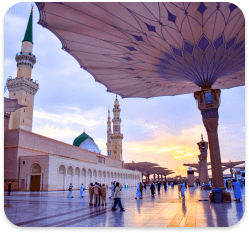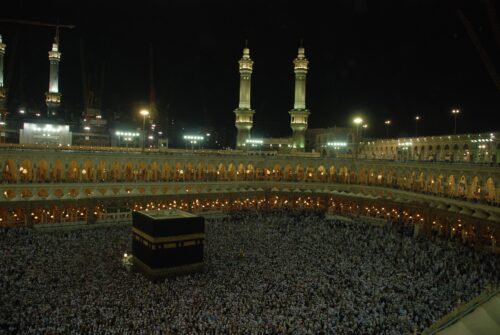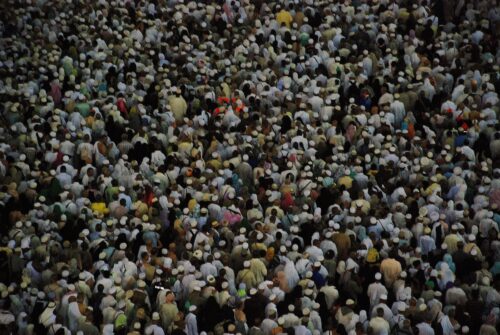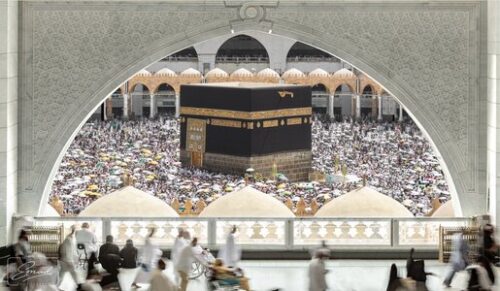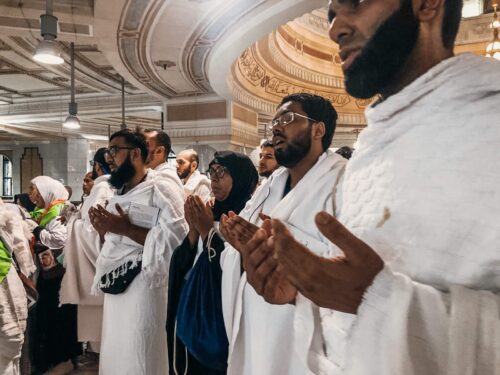Who is Qurbani compulsory on? – Everything You Need To Know
The twelfth and last month of the Islamic calendar, Dhul Hijjah is the most religious time of the year for Muslims worldwide. It is the sacred month in which Hajj (the Annual Pilgrimage) and Eid ul Adha take place, and Qurbani is observed and celebrated.
Religiously known as “Udhiya,” Qurbani can be defined as the slaughter of any animal (cow, sheep, goat, or camel) in the name of Allah SWT.
Qurbani is performed to not only commemorate the devotion of Prophet Ibrahim (AS) that was demonstrated when the Almighty commanded him to sacrifice the closest thing to him, but also to the dedication and faithfulness of his son, Prophet Ismail (AS), who willingly agreed to be sacrificed for Allah SWT.
Seeing the trust of His believers, Allah SWT miraculously swapped Prophet Ismail (AS) for a ram and revealed that it was actually a test.
Following the willingness of Prophet Ibrahim (AS) to sacrifice his first-born son, Muslims are instructed to honour this dedication by sacrificing an animal and distributing the meat into three parts; one for their own household, one for relatives, friends, and neighbours, and one for those who weren’t able to perform Qurbani that year.
Qurbani takes place after the Eid prayer on 10th, 11th, and 12th Dhul Hijjah. After the sacrifice is completed, Muslims spend these three days celebrating, praying, cooking delicious meals, and exchanging gifts.
One of the most common questions associated with the Islamic ritual of sacrifice includes who is Qurbani compulsory on. Keep reading to find out.
Who Is Eligible for Qurbani?
 The purpose of Qurbani in Islam isn’t only to commemorate the sacrifice of Prophet Ibrahim (AS) in the name of Allah SWT but to help the needy by sharing an equal portion of the meat with them. According to Islamic scholars, all families who live on a very low income are eligible for Qurbani.
The purpose of Qurbani in Islam isn’t only to commemorate the sacrifice of Prophet Ibrahim (AS) in the name of Allah SWT but to help the needy by sharing an equal portion of the meat with them. According to Islamic scholars, all families who live on a very low income are eligible for Qurbani.
In other words, this refers to families that don’t have wealth equivalent to the value of Nisab. Secondly, all female-headed households and homes with elderly or disabled people are eligible to receive a portion of the Qurbani. The list also includes all kids aged less than five years, pregnant women, breastfeeding mothers, and families with no access to the market.
However, it is advised that a thorough inspection and assessment should be conducted before identifying the priority and weight of each of the beneficiaries. In addition to this. It should be ensured that the decision made isn’t biased or subjected to any favouritism. You must give priority to the household that is most in need of financial support.
When doing so, make sure to distribute the meat equally in three parts. One should be kept by you, the second part should be distributed among neighbours, friends, and family, and the third portion should be given to those in need, i.e. the mustahik (people facing hardships).
“The animal offerings are among the rites decreed by GOD for your own good. You shall mention God’s name on them while they are standing in line. Once they are offered for sacrifice, you shall eat therefrom and feed the poor and the needy. This is why we subdued them for you, that you may show your appreciation.” [Holy Quran 22:36]
Who Is Exempt from Qurbani?
Similar to the rules and requirements of Zakat, there are exceptions when it comes to Qurbani. As stated earlier, Qurbani is compulsory for every physically and financially able Muslim. According to the Islamic school of thought, the following people are exempted from Qurbani:
- Children
- Mentally vulnerable Muslims
- Muslims who are financially unstable and do not possess value equivalent to Nisab
Is Qurbani Compulsory for Everyone?
Allah SWT in the Holy Quran says, “And complete the Hajj and ‘Umrah for Allah. But if you are prevented, then [offer] what can be obtained with ease of sacrificial animals. And do not shave your heads until the sacrificial animal has reached its place of slaughter. And whoever among you is ill or has an ailment of the head [making shaving necessary must offer] a ransom of fasting [three days] or charity or sacrifice. And when you are secure, then whoever performs ‘Umrah [during the Hajj months] followed by Hajj [offers] what can be obtained with ease of sacrificial animals. And whoever cannot find [or afford such an animal] – then a fast of three days during Hajj and of seven when you have returned [home].” [Holy Quran, 2:196]
Prophet Muhammad (PBUH) said, “The first thing we will do on this day of ours is to offer the (Eid) prayer and then return to make the sacrifice. Whoever does so, he acted according to our Sunnah.” (Bukhari)
According to the Hanafi school of thought, Qurbani is compulsory on the following:
- Non-Travelling People: All Muslims who are not travelling and are within a distance of 45 kilometres (27 miles) of their home.
- Every able-bodied Muslim who has surpassed the age of puberty and is mature.
- Every Muslim who owns wealth beyond their needs. In other words, qualify to pay for Zakat.
If you do not fit into the above-mentioned conditions, then you are not required to perform Qurbani.
Qurbani Rules for Husband and Wife
 A husband and wife who aim to perform Qurbani should start by making Niyat (intention) and ensuring that they don’t trim their hair or cut their nails from the first day of Dhul Hijjah until the 10th of Dhul Hijjah, or the day of Qurbani. The husband and wife can perform Qurbani any time after the Eid prayer during the three days of Eid ul-Adha.
A husband and wife who aim to perform Qurbani should start by making Niyat (intention) and ensuring that they don’t trim their hair or cut their nails from the first day of Dhul Hijjah until the 10th of Dhul Hijjah, or the day of Qurbani. The husband and wife can perform Qurbani any time after the Eid prayer during the three days of Eid ul-Adha.
However, note that when it comes to the slaughtering of the animal, it should only be performed by the husband or the Qasai (professional butcher or slaughterer). After the Qurbani is done, it is instructed that the husband and wife keep only one-third of the meat in their home and equally distribute the rest among their families, neighbours, and the poor.
It is forbidden to sell any part of the animal’s meat. Doing so will invalidate the sacrifice.
How to Pay for Qurbani
Ata bin Yasar reported, “I asked Abu Ayub (Al-Ansari) how the sacrifices (of animals) were done during the time of the Messenger of Allah (SAW).” He said, “A man would sacrifice a sheep for himself and the people in his household.” (Tirmidhi)
In most countries and the UK, the ritual of slaughtering an animal also known as Qurbani can only be carried out by a registered and recognized slaughterhouse. It is then the responsibility of the slaughterhouses to distribute the meat into equal parts, such as seven portions if you sacrifice a cow and one if you sacrifice a goat or a sheep.
The workers at the slaughterhouse can even help you by donating and distributing the meat to the communities that face the most hardships and are poverty-stricken.
The Messenger (PBUH) of Allah SWT said, “A person is not a believer who fills his stomach while his neighbour goes hungry.” (Sahih Al Bukhari)
Therefore, those who are eligible to give Qurbani should either make a donation equivalent to the value of a sacrificial animal or sacrifice an animal and distribute its meat on the 10th, 11th, and 12th of Dhul Hijjah after Eid prayers.
Summary – Who Is Qurbani Compulsory On?
Otherwise known as Eid ul Adha or the Festival of Sacrifice, Qurbani is the most significant time of year for Muslims all around the world. This is because Qurbani commemorates the sacrifice of Prophet Ibrahim (AS) for the sake of Allah SWT and the great miracle of the Almighty that saved the life of his son, Prophet Ismail (AS).
Simply put, the rules of Qurbani in Islam are similar to the eligibility criteria that apply to Zakat. Qurbani is compulsory for every mature Muslim with a sound mind and an income that meets the threshold of Nisab.
Therefore, if Allah SWT has blessed you with a stable source of income and a healthy life, performing the ritual of Qurbani on the 10th, 11th, and 12th of Dhul Hijjah after Eid prayers is mandatory and shouldn’t be missed at any cost.
However, if you don’t want to perform the ritual yourself, you should make a donation equivalent to the cost of a Qurbani animal and give it to others with the intention to improve the quality of life of those in need.
Explore this site and hundreds more from the three holy sites on IslamicLandmarks.com
